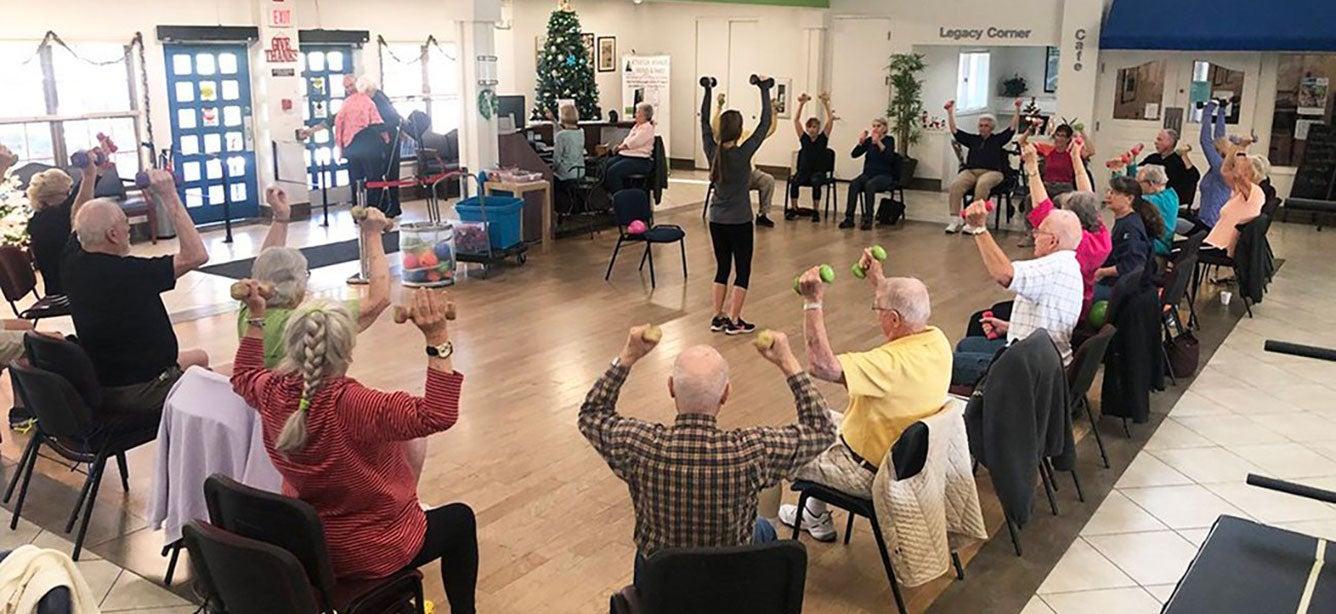
Looking ahead to 2025, bipartisan work with the next administration and Congress is essential to successfully advocating for aging services programs and policies that support aging with dignity, independence and health.
With your voices, Congress came together to keep the government open and funded through March 14, 2025, and included an extension of the Medicare Improvements for Patients and Providers Act (MIPPA) in the deal.
The 119th Congress convened on Jan. 3, 2025, and is currently focusing on committee organizing under new and returning leadership. Members are discussing what legislation can move quickly, particularly several proposals outlined by the incoming president. Congress will also need to turn its attention soon to the looming March deadline.
In this article we will focus on NCOA top priorities for that unfinished work from the 118th Congress. We are excited about the possibilities this year and eagerly await the chance to engage a new Congress on behalf of older Americans!
Funding and reauthorizing the Older Americans Act
Passed in 1965 along with Medicare, the Older Americans Act (OAA) is the primary federal law that supports community initiatives to help older adults remain healthy, independent, and financially secure. The Act authorizes programs and strategies that deliver services like meals, job training, senior centers, health promotion, caregiver support, transportation, and more.
Historically, OAA funding has trailed both inflation and population growth. Congress has not provided full funding for OAA programs through regular appropriations, and in FY 2024, OAA programs received $392 million less than authorized levels in FY23.
You can view the proposed FY 25 House and Senate funding amounts in our annual table,
The authorization for OAA expired on Sept. 30, 2024, and this lack of reauthorization could hurt Older Americans Act programs as Congress begins to examine unauthorized government programs to find cuts in spending.
Together, we need to work to reauthorize the Older Americans Act as well as protect annual funding for its critical programs and resources it provides to older adults throughout the country.
NCOA collaborates with national and local Aging Services Network organizations to advocate for the entirety of OAA programs. Our priorities are shaped by the insights we receive from the older adults we serve, senior centers, Senior Community Service Employment Program (SCSEP) partners, healthy aging grantees, and Benefits Enrollment Centers (BECs) we work with every day. For annual appropriations and reauthorization, NCOA’s primary focus is on resources for senior centers, which includes group meals, healthy aging programs, and workforce supports, both for older workers themselves and the direct care workforce that supports long-term care.
Extending Medicare Improvements for Patients and Providers Act (MIPPA)
The 2008 Medicare Improvements for Patients and Providers Act (MIPPA) has been a lifeline for millions of older adults. The program connects Medicare beneficiaries with programs that can make their health care and prescription drugs more affordable, like the Medicare Savings Programs (MSPs) and Part D Low Income Subsidy (LIS/Extra Help).
MIPPA is a small Medicare program that makes a huge impact. Over the past two years alone, the program has assisted more than 9 million Medicare beneficiaries. Unfortunately, estimates indicate that less than half of those eligible for MSPs are enrolled, and over 3 million eligible individuals remain unenrolled in the LIS/Extra Help program. This lack of enrollment significantly impacts their ability to afford essential health care and medications. With its extension through March 2025, MIPPA will continue helping low-income Medicare beneficiaries access essential health care, reduce financial burdens, and stay healthy. That’s why we must continue to advocate for the extension of this critical program past March 14, 2025.
The Supplemental Nutrition Assistance Program (SNAP)
The Supplemental Nutrition Assistance Program (SNAP) is the only federal nutrition program available to all eligible older adults in every part of the country. Nationally, SNAP reached 5.3 million low-income households with individuals age 60 or older who were food insecure annually from 2018–2020. Whether in rural, urban or small towns, participation in SNAP among all older adult households is consistent for all types of counties—over 10%. Protecting funding for this critical program will mean older adults do not have to choose between food or medicine.
Informed by the work of the Benefit Enrollment Centers (BECs) supported with MIPPA funding, and our network of Senior SNAP Enrollment Initiative grantees, we know that food insecure older adults remain significantly under-enrolled in SNAP. Today, only half of those eligible for this assistance receive it. As debate continues on renewing the Farm Bill, we must protect and strengthen SNAP for older adults and other food-insecure individuals across the country.



